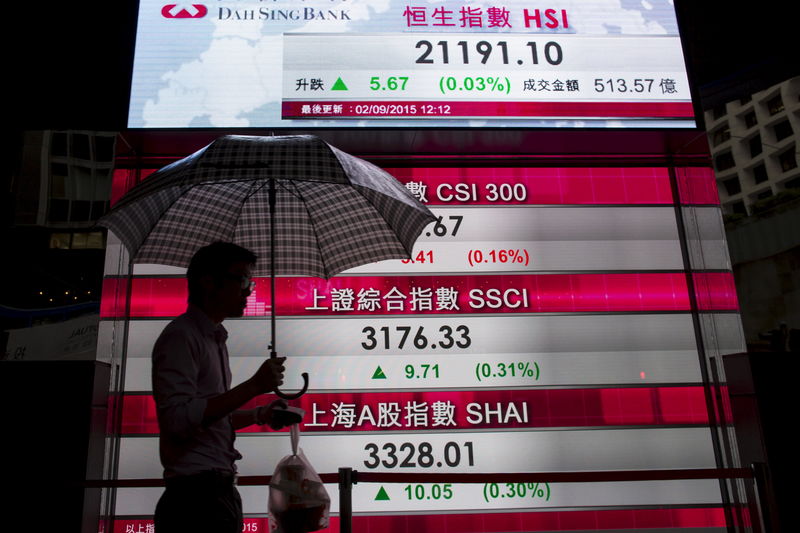By Alex Ho
Investing.com - Asian markets rebounded on Monday in Asia, with Chinese stocks surging 3% even after data showed the country’s manufacturing activity contracted in February.
China’s Shanghai Composite and the Shenzhen Component both surged 3.0% by 10:30 PM ET (02:30 GMT).
The surge in prices came despite a private survey showed China’s manufacturing activities slowed last month.
The Caixin/Markit Manufacturing Purchasing Managers’ Index came in at 40.3 for February, which was its lowest reading since the survey was launched in early 2004.
“China’s manufacturing economy was impacted by the epidemic last month,” said Zhengsheng Zhong, chief economist at CEBM Group, a Caixin subsidiary. “The supply and demand sides both weakened, supply chains became stagnant, and there was a big backlog of previous orders,” he said in a press release.
Data on Saturday showed China’s official manufacturing PMI contracted at its fastest ever in February, even worse than during the global financial crisis of 2008.
Hong Kong’s Hang Seng Index gained 0.8%.
Japan’s Nikkei 225 traded 1.5% higher.
While not a directional driver, the au Jibun Bank Japan Manufacturing Purchasing Managers' Index (PMI) received some attention as it slipped to a seasonally-adjusted 47.8 from a final 48.8 in the previous month. The February reading was its lowest since May 2016.
"Near-term prospects for Japan's industrial sector appear very bleak," said Joe Hayes, economist at IHS Markit, which compiles the survey.
"Weakness was driven by the demand-side in a broad-based fashion. Consumer, intermediate and capital goods producers recorded faster declines in demand and overall order books fell at the sharpest rate in over seven years."
South Korea’s KOSPI rose 1.1%.
Down under, Australia’s ASX 200 dropped 0.8%. The Reserve Bank of Australia will set its policy on Tuesday.
In the U.S., the Federal Reserve on Friday signalled that it’s open to easing policy and some strategists expect action as soon as Monday.
Some believe the Fed might reduce interest rates this month after Fed Chairman Jerome Powell issued a rare statement on Friday pledging to “act as appropriate” to support the economy, although he admitted that monetary policy cannot completely shield a U.S. economy that is increasingly threatened by the coronavirus.
